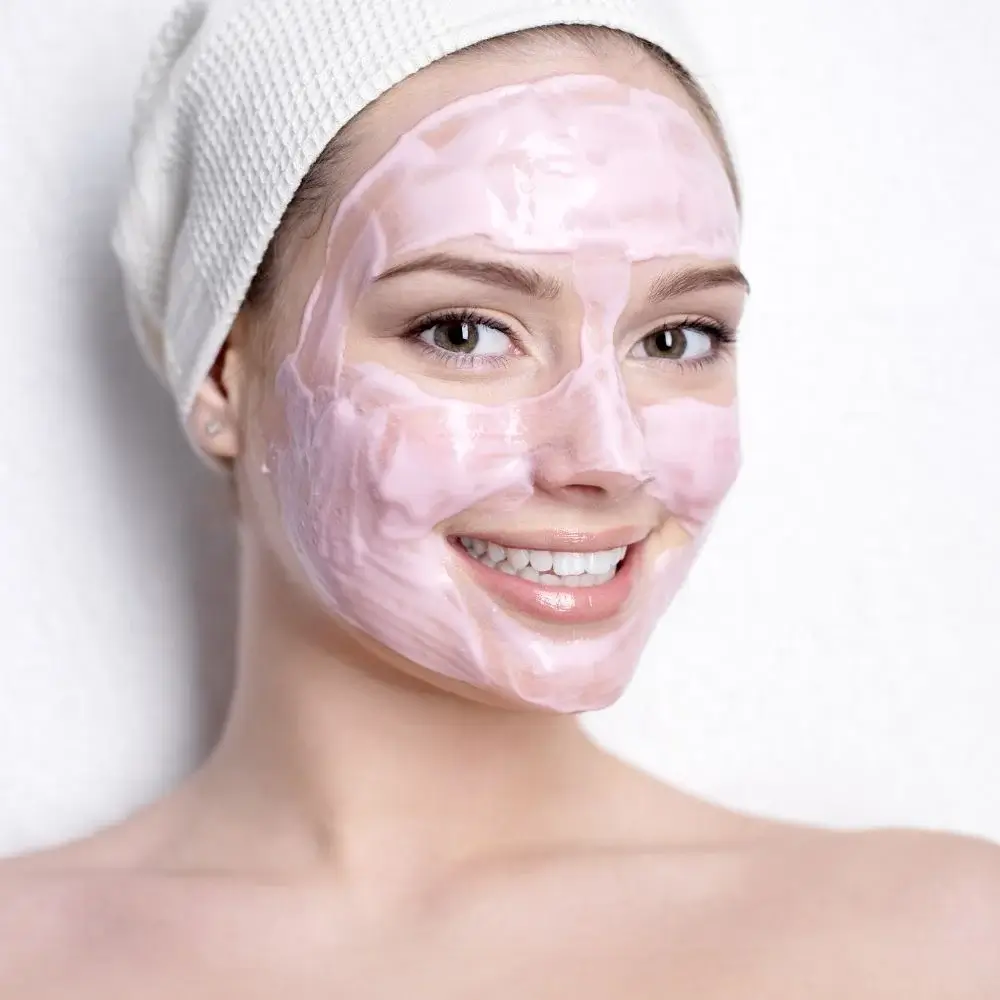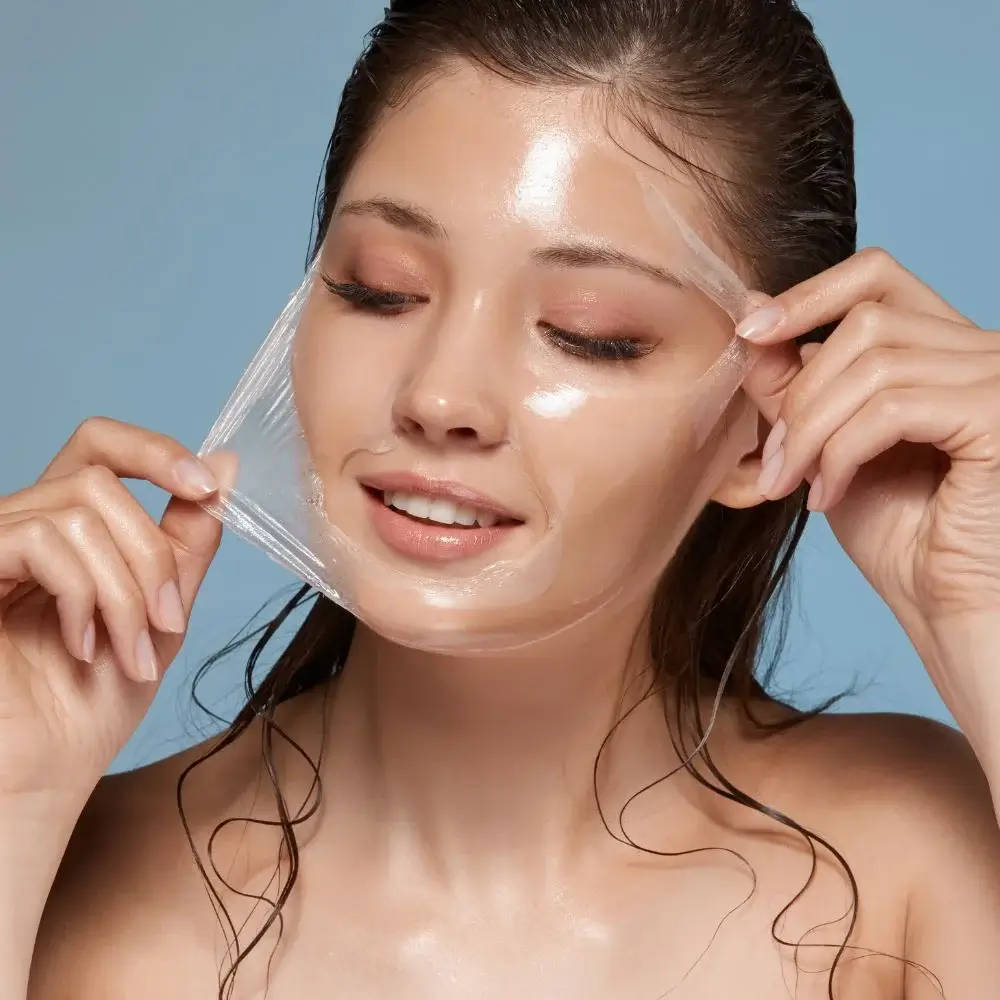Sensitive skin can be a real challenge when it comes to skincare. One wrong ingredient can cause redness, irritation, and breakouts. If you have a sensitive face, you need to be vigilant about what products you use and how you care for your skin. In this post, we’ll share some of our top tips for protecting your sensitive face, as well as some of the best products to help keep your skin healthy and radiant.
Know Your Triggers
The first step to protecting your sensitive face is to know what triggers your skin. These can include anything from certain ingredients in skincare products to environmental factors like pollution or harsh weather. Once you know your triggers, you can avoid them and select products that are designed for sensitive skin. Look for products that are fragrance-free, hypoallergenic, and non-comedogenic (won't clog pores.)
Be Gentle with Your Skin
When it comes to sensitive skin, less is often more. Avoid over-washing your face and using harsh exfoliators, both of which can strip your skin of its natural oils and cause irritation. Instead, use a gentle cleanser, and lightly rinse with lukewarm water. Avoid hot water, which can damage your skin's natural barrier.
Invest in Quality Sun Care
The sun's UV radiation can wreak havoc on sensitive skin and cause sunburn and dryness. Use a broad-spectrum sunscreen that's made for sensitive skin and apply it every day, regardless of the weather. Consider wearing a hat or avoiding direct sunlight during peak hours to protect your skin further.
Hydrate Your Skin
Sensitive skin can be more prone to dryness, which can exacerbate even the slightest irritation. Drink plenty of water each day, and use a gentle, moisturizing lotion that's free of fragrance, alcohol, and other irritants. Look for ones rich in hyaluronic acid and other ingredients that can help replenish and hydrate your skin.
Seek Professional Advice If Needed
If you're struggling with fragile and sensitive skin, consulting a dermatologist or esthetician is a great idea. They can evaluate your skin and recommend products and treatments that will soothe and protect your face.
Protecting your sensitive face doesn't have to be a complicated and challenging process. By avoiding triggers, being gentle with your skin, investing in sun care, hydrating your skin, and seeking professional help if needed, you can keep your skin healthy and radiant. It requires patience, attention to detail, and the right products, but the rewards are worth it. Whether you are looking to maintain an even complexion, avoid irritation or achieve a glowing complexion, protecting your sensitive face is a journey that you can embark on. We hope these tips and products will help you get started!
If you're a beauty lover with sensitive skin, finding the perfect face mask can be a daunting task. We understand the struggle, which is why we've done the research and teamed up with beauty editors to bring you the best face mask for sensitive skin. Trust us, we've tried and reviewed countless options to bring you only the best. Say goodbye to irritated skin and hello to a refreshed, rejuvenated complexion. Click the link to find your next holy grail face mask for sensitive skin. Your skin will thank you!
What are some common myths about face masks for sensitive skin?
Regarding face masks for sensitive skin, it's essential to separate fact from fiction. Let's debunk some common myths surrounding these masks. Myth #1: All face masks are irritating and should be avoided. Many masks are specifically formulated for sensitive skin, using gentle ingredients and avoiding common irritants. Myth #2: Face masks worsen skin sensitivity. In reality, a suitable mask can provide soothing and hydrating benefits, helping to calm sensitive skin. Just choose masks specifically designed for sensitive skin and patch review before use.

What is the role of exfoliation in a face mask for sensitive skin?
Exfoliation is a vital component of face masks designed for sensitive skin, offering a range of benefits. By effectively removing dead skin cells, exfoliation prevents the build-up of debris that can lead to a lackluster complexion and clogged pores. It is crucial to select products with gentle exfoliating agents, such as natural fruit enzymes or finely ground particles, to minimize the risk of irritation. This process helps promote a smoother and more even skin texture, enhances the absorption of subsequent skincare products, and reveals a fresh, radiant complexion. Remember to use exfoliating face masks in moderation and follow instructions closely to prevent potential adverse reactions.

What is the best time to apply a face mask for sensitive skin?
Achieving optimal results with a face mask for sensitive skin requires careful timing. By applying a face mask at this time, your skin can make the most of the overnight rejuvenation process while minimizing the likelihood of reactions or irritations. Begin by thoroughly cleansing and drying your skin, ensuring a fresh canvas. Gently and evenly apply the mask, avoiding the sensitive eye area. Allow the mask to work its magic for the recommended duration, and then delicately rinse it off with lukewarm water. Complete your routine by applying a nourishing and soothing moisturizer, effectively sealing the mask's benefits and leaving your skin revitalized and supple.

How can I store a face mask for sensitive skin to maintain effectiveness?
Consider the following guidelines to ensure the optimal storage and effectiveness of a face mask for sensitive skin. Begin by thoroughly drying the mask before storing it, as moisture can promote bacterial growth. Utilize a clean, dry container or a sealable plastic bag to shield it from dust and contaminants. Find an excellent, dry location away from direct sunlight and excessive heat, as these factors can compromise the mask's materials. Avoid folding or crushing the mask to preserve its shape and integrity. Lastly, adhere to the manufacturer's instructions for regularly washing reusable masks to maintain proper hygiene.

How do I know if a face mask for sensitive skin is cruelty-free and vegan?
When searching for a face mask that aligns with your values of cruelty-free and vegan skincare, consider a few essential aspects. Start by looking for products that proudly display recognized cruelty-free certifications, such as Leaping Bunny or PETA's "Beauty Without Bunnies" logo. These symbols guarantee that no animals were harmed during the production process. Next, scrutinize the ingredients list for animal-derived components like beeswax or collagen. Instead, choose masks featuring plant-based ingredients, ensuring they are vegan-friendly. Lastly, delve into the brand's ethics and values. Companies committed to cruelty-free and vegan practices often showcase this information on their websites, providing transparency and peace of mind.
Should I apply a face mask on wet or dry skin for sensitive skin?
For individuals with sensitive skin, it is crucial to consider the optimal application method when using a face mask. Applying a face mask on dry skin is generally recommended for maximum effectiveness and minimal potential irritation. Wet skin can hinder the mask's ability to adhere properly and may lead to reduced benefits. However, it's important to remember that each face mask product may have specific instructions, so reading and following them is advisable. If uncertain, seeking guidance from a dermatologist or performing a patch review can help determine the most suitable approach for your sensitive skin.







